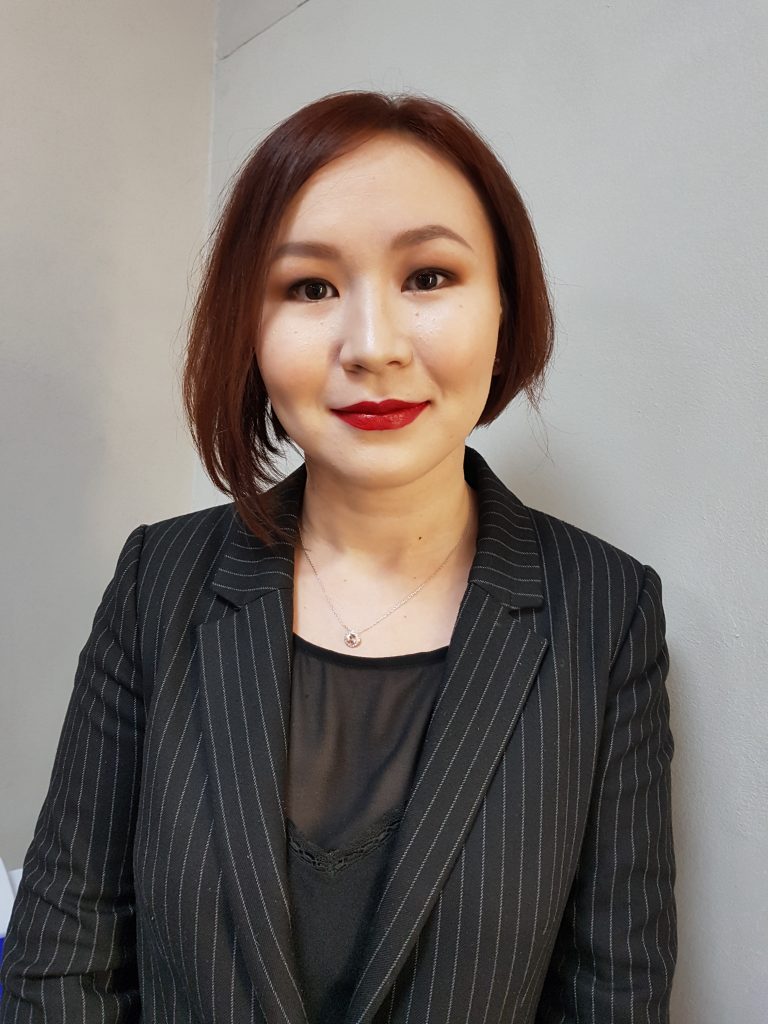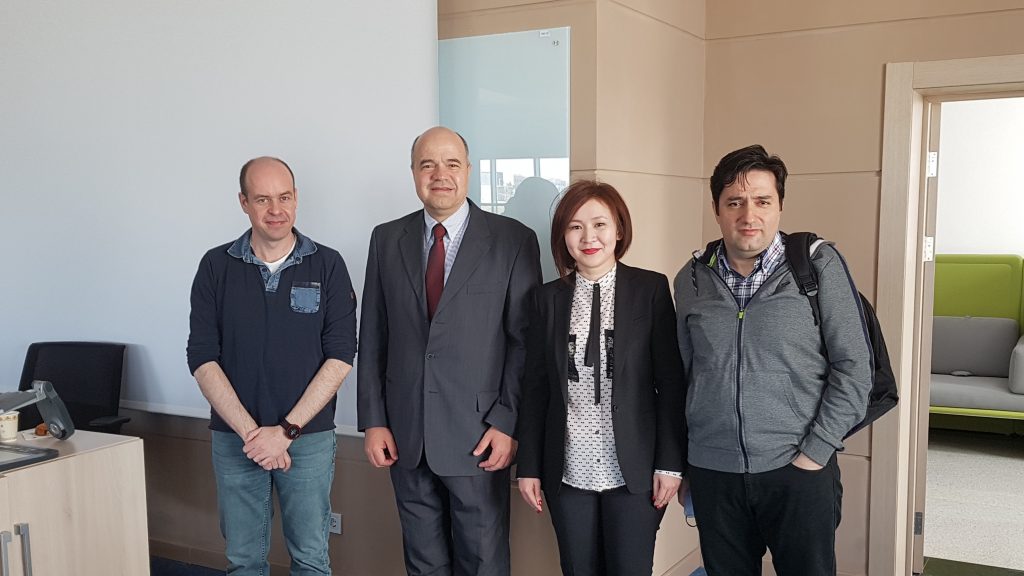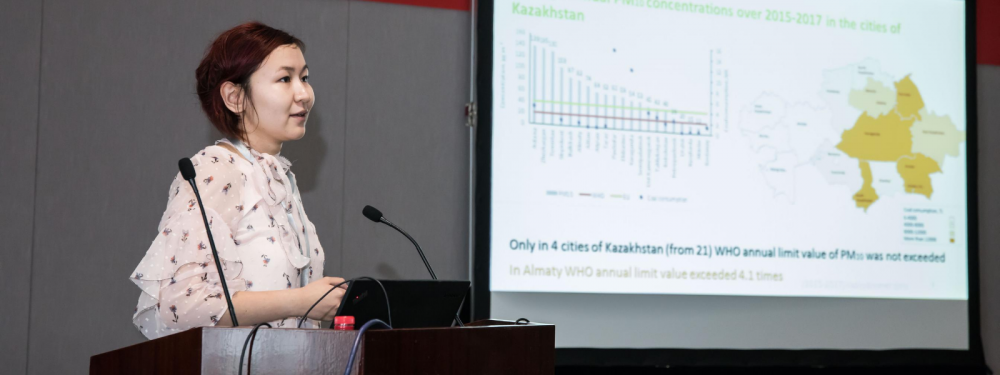NU alumni Aiymgul Kerimray: energy poverty research in Kazakhstan
 Our guest, Ayimgul Kerimray, studied at the School of Engineering and Digital Sciences of Nazarbayev University under the Sustainable Engineering program. Ayimgul is now a postdoctoral researcher at the al-Farabi Kazakh National University.
Our guest, Ayimgul Kerimray, studied at the School of Engineering and Digital Sciences of Nazarbayev University under the Sustainable Engineering program. Ayimgul is now a postdoctoral researcher at the al-Farabi Kazakh National University.
What topic is your research devoted to? What is its purpose?
The topic of my PhD thesis was: “Modeling the ways of decarbonization of heating systems in the residential sector of the Republic of Kazakhstan”. The research aims to create the potential for modeling energy systems in Kazakhstan and to use such research to forecast future scenarios around the development of energy use in the residential sector. Additionally, the research seeks to eliminate existing limitations in modeling energy systems while also solving the problems of developing countries such as energy poverty, lack of energy, and inequality between urban and rural areas. Finally, we wanted to develop and apply suitable methods to solve data availability and analysis problems.
I started by looking at the research already available on the topic, identifying data gaps and research needs, and assessing access to clean energy and current levels of energy poverty. As a result, in 2017, my scientific supervisors and I published an article on global trends in the use of coal for heating households for the scientific journal “Energy for Sustainable Development”. The following year, in 2018, our article devoted to the analysis of energy poverty in Kazakhstan was published in the scientific journal “Local Environment: The International Journal of Justice and Sustainability”. We also worked on creating a model of energy systems for the residential sector, developing scenarios and obtaining simulation results. We described all this in a scientific article that was accepted for publication in the “Journal of Cleaner Production”.
In terms of research, what are your most recent findings and near-future plans?
Our research will improve knowledge in the field of modeling and analysis of the residential energy sector.
The fact that other scientists are citing our studies indicates their relevance and utility. I am proud to report that one of my articles became one of the most cited pieces featured in the “Energy for Sustainable Development” magazine.
My work also attracted some attention from the public, the media, and politicians. For example, an article in the Information Bureau was devoted to our research on fuel poverty in Kazakhstan https://informburo.kz/interview/toplivnaya-bednost-v-bogatoy-strane.html
During work on my dissertation, I presented the results of the research at various sites in Kazakhstan and abroad. I also worked closely with the Committee on Statistics to improve energy statistics in Kazakhstan.
While pursuing my doctoral studies, I also worked as a Research Assistant at a center that focused on modeling energy systems. As part of my research work at Nazarbayev University from 2011 to 2018, I participated in developing models for Kazakhstan’s power system. Several reputable international organizations, such as the International Energy Agency, the International Renewable Energy Agency, and the World Bank greatly appreciated this work. I also became an expert reviewer for Biennial Papers of the UN Framework Convention on Climate Change.
What do you think is important in the process of working on a dissertation?
Having an effective scientific guide and good mentorship are very important to one’s success. My academic advisors, Professor Luis Ramon Rojas Solorzano from NU and Professor Brian O’Gallahuar from University College Cork (Ireland), have been very supportive and helpful throughout my studies. I will forever remember the respectful communication style of my scientific advisors with all people, and especially with their students. I also remember that, despite their busy schedule, they always found time to discuss emerging issues.
Also, participation in conferences and seminars is important. For four years of doctoral studies, I visited many such seminars, both in Kazakhstan and abroad. This allowed me to learn more about research in my field, keep abreast of current topics and solutions, and discuss my ideas with experts.
What are your future plans?
I am currently studying air quality in Kazakhstan cities. Unfortunately, almost all major cities in the country have a problem with air pollution, but there is very little good scientific research on this topic. Over the past two years, we have published two scientific articles on air quality in Almaty, in Science of the Total Environment, and Aerosol and Air Quality Research.
I also work with an international research group that is exploring the topic of energy poverty and energy availability in Central Asia and South Asia.
Now, my colleagues and I, are trying to popularize science, we conduct lectures and seminars at different venues. We opened the Air Quality Science Telegram Channel, in which we talk about scientific research in the field of air quality, translate and write useful articles, as well as provide analytics. We must learn to understand scientific research and use this knowledge to make decisions.
Policy decisions must be based on science. And science must provide reliable information for politicians and the public to make the right decisions. Therefore, it is important to convey this information in clear and simple language.
What are your recommendations/wishes for future doctoral students? What do you think you need to pay attention to when working on a dissertation?
My recommendations for future doctoral students:
- Carefully choose the topic of the dissertation. You must be in love with the topic of your research.
- Select an academic advisor who not only has extensive research experience but who also creates a friendly, motivating work environment. Working in science is always highly competitive and stressful. Therefore, without such an atmosphere in the scientific group, doctoral studies can turn into torture. If a potential supervisor does not respond to your questions and emails on time or responds after 3 weeks, then this is a sign that most likely this person will not have time for you.
- Read scientific articles on the topic of your dissertation each day, one or more. You should always have a few printed scientific articles (or an e-book) in your bag for free time reading. After you have read 100, 200, 300 scientific articles, it is much easier for you to work in science, write publications, and work on your dissertation. You need to understand that working in science is not a standard work of 8 hours a day, 5 days a week – it requires much more dedication to achieve a result.



